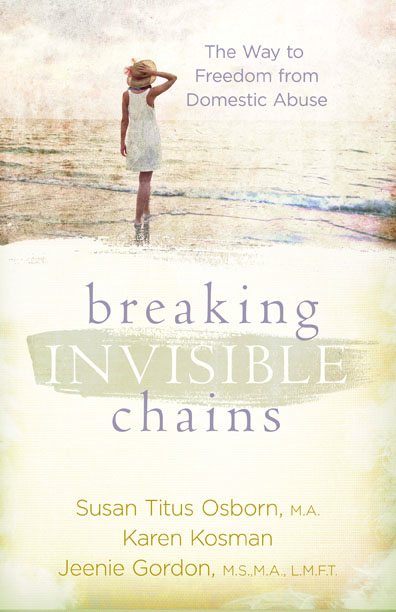I use fictional techniques when I write true personal experience stories. All my stories seem to be about my oldest son, Richard. To have a story, you need conflict. My youngest son, Mike, is so easy going, there isn’t much to write about. Let’s see if you identify with the following story written over 30 years ago.
A Gentle Attitude
The front door was slammed angrily with a thud. My son stomped down the stairs and out of earshot. Only silence remained.
Why do I fight with my son? My stomach churned as I pondered this question. I had planned what to say to him, but when he stood there, hands on his hips, looking so defiant…
I stared out the window, watching his tall, lanky form disappear down the street. When he was young, he usually obeyed me. I could answer his questions. We agreed on most issues.
Now that he’d become a teenager, I didn’t have pat answers. Plus, I no longer had a spouse to confer with or to discuss the problems that seemed to arise daily as my son struggled to find his own identity.
Overwhelmed with emotion, I sank onto the couch and buried my face in my hands. The responsibility of raising a son alone was almost more than I could handle. Even when I carefully planned my words in advance, my emotions took over as soon as I opened my mouth. I’d read books by noted Christian psychologists on how to deal with teens, but the words seemed useless when I tried them out in real life. Why couldn’t I find a rule book with all the answers?
My eyes strayed to my closed Bible, lying on the coffee table. I couldn’t remember the last time I had opened it. In years past, I had faithfully spent time with God in His Word. Since my world had been turned upside down, I’d neglected God as well as myself and my son.
Hesitantly, I opened my Bible to the Psalms and began to read. The invisible weight on my shoulders gradually evaporated. I prayed, not for material things or a change in circumstances, but for wisdom in dealing with my firstborn.
The realization came to me that my child was growing up and that my role in his life was changing. My answers weren’t enough anymore. He needed to explore his own way, to find his own explanations to life’s questions.
My job was to love and support him. We might not always agree, but we could try to understand each other. This would require work on my part. When I disagreed with him, I needed to listen to his point of view. Talking openly with him, but not pushing my own ideas, was vital. Also, I needed to admit that I don’t have all the answers.
The front door opened and slammed shut again. I looked up into the eyes of a tall, young man who expectantly waited for my response.
“I’ve been thinking while you were gone, and I’m beginning to see your point of view,” I said. “I don’t necessarily agree with you, but I think I understand how you feel, and I respect your opinion.”
I stood up and hugged my son.
He returned my embrace and softly said, “Thanks, Mom.”
See how I used action and dialogue to move the story along?


